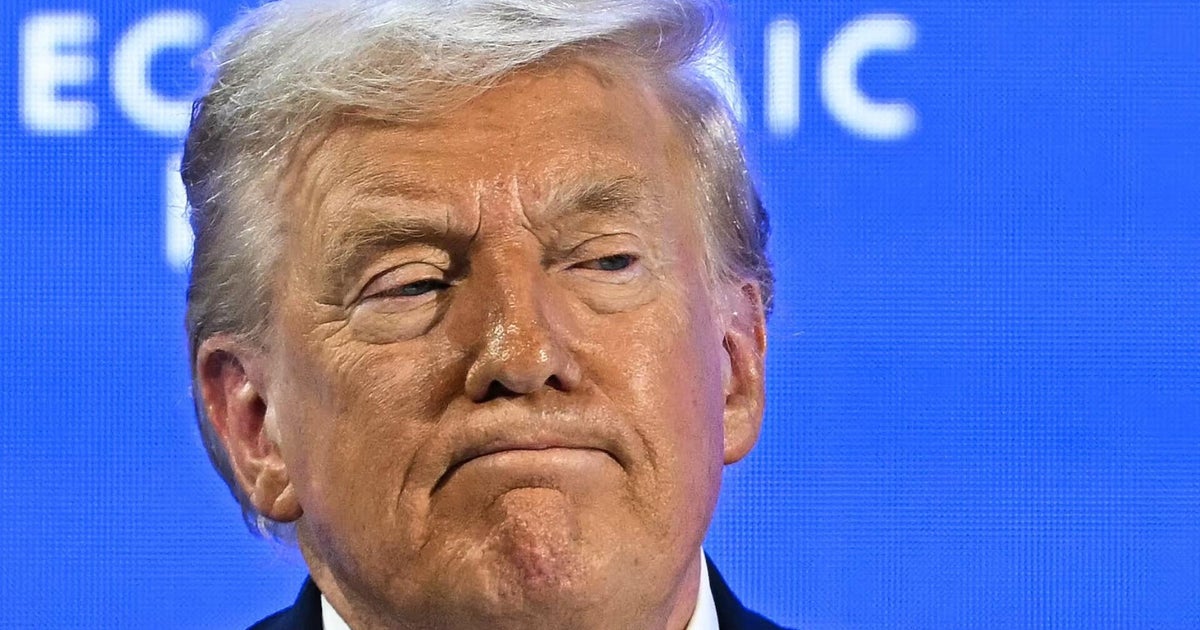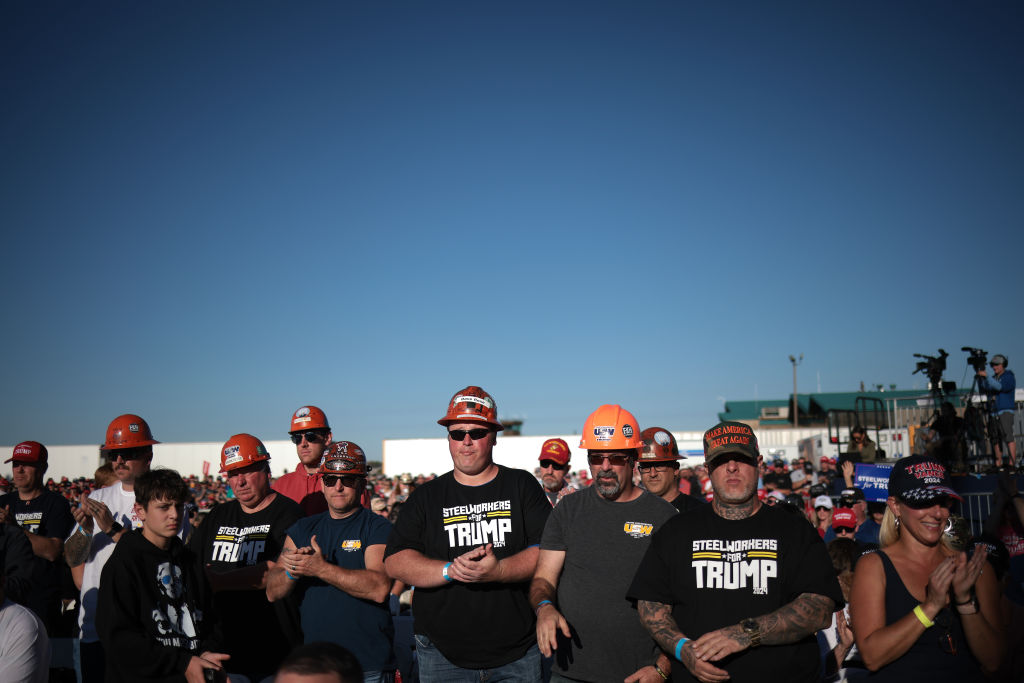The Trump metal tariffs' biggest risk: Trade war
How might the steel and aluminum tariffs President Donald Trump announced Thursday change things at home? One looming risk: retaliation from America's biggest trading partners, like the European Union and China, on imports in unrelated industries.
Mr. Trump today said his administration would impose aluminum and steel tariffs beginning "sometime next week." The tariffs will be 10 percent for aluminum and 25 percent for steel, lasting for "a long period of time," he told steel and aluminum executives at the White House today.
The decision to impose tariffs is likely to escalate simmering tensions with China and other U.S. trading partners. Critics of such a move fear that other countries will retaliate or use national security as a pretext to impose trade penalties of their own. They also argue that sanctions on imports will drive up prices for Americans and hurt U.S. automakers and other companies that use steel or aluminum.
"We purchase over 90 percent of our steel for U.S. production from U.S. suppliers," GM (GM) said in a statement, according to a tweet from Reuters reporter David Shepardson. "We need to better understand the details around the announcement today, but the bottom line is we support trade policies that enable U.S. manufacturers to win and grow jobs in the U.S. and at the same time succeed in global markets."
The proposed tariffs "couldn't come at a worse time," said American International Automobile Dealers Association CEO Cody Lusk in a statement. "Auto sales have flattened in recent months, and manufacturers are not prepared to absorb a sharp increase in the cost to build cars and trucks in America. The burden of these tariffs, as always, will be passed on to the American consumer. Car shoppers looking for a deal will instead find that they are paying a new tax to transport themselves and their families."
Ian Bremmer, president of political risk consulting firm Eurasia Group, said U.S. consumers would likely see only small price increases as domestic manufacturers affected by the tariffs pass along higher costs on goods such as cars, appliances and beverage cans.
"The difference is likely to be so small as to be all but unnoticeable, but business interests opposed to these tariffs will do all they can to make sure consumers notice price increases," he said, describing the tariffs as "the most protectionist move we've seen so far from the White House."
The Dow Jones industrial average plunged 420 points, or 1.7 percent, as investors reacted to the news from the White House. The S&P 500 and Nasdaq also fell.
The U.S. is the world's biggest steel importer. Last year, China was the 11th biggest steel exporter to the U.S., down 5 percent, according to the Department of Commerce's International Trade Administration. China has been accused of flooding the market with cheap exports.
Yet steel and aluminum make up just over 2 percent of total U.S. imports, according to Capital Economics. So potential higher prices in other industries resulting from overseas retaliation may "outweigh any boost to domestic steel and aluminum producers," analysts with the research firm said in a note.
Domestic U.S. steel prices are up about 20 percent since the start of the year amid expectations of "protectionist measures, which could prove a significant drag on steel consumers like the machinery, motor vehicle and construction industries," the Capital Economics analysts wrote. "Ironically, the tariffs actually raise the incentives for these other manufacturers to offshore production to avoid the tariffs. Construction firms will have little choice but to pass higher costs onto final consumers."
Section 232 of the Trade Expansion Act of 1962 gives the president authority to restrict imports and impose unlimited tariffs if a Commerce Department investigation finds a national security threat.
China is already considering restricting its imports of U.S. soybeans, an important crop for American farmers, according to Bloomberg. That may hurt Trump in some farming states, where he enjoyed strong support in the 2016 election.
The move is already heightening tensions amid NAFTA discussions with Canada and Mexico.
"As a key NORAD and NATO ally, and as the number one customer of American steel, Canada would view any trade restrictions on Canadian steel and aluminum as absolutely unacceptable," Chrystia Freeland, Canada's foreign affairs minister, said in a statement today.
And the European Union is also discussing options.
"If he hits hard, we will have to take countermeasures," EU trade chief Cecilia Malmström said after arriving at a meeting of the 28-nation group's trade ministers this week, according to Politico.
Still, the direct impact for U.S. companies may be limited for now, Barclays analysts wrote in a note to clients after today's announcement. Risk "lies in the response of U.S. trading partners and whether the administration's decision to impose restrictive trade policies is only the first in a series of moves."
Rather than straight tariffs, quotas could be a more palatable option for other steel-producing nations, according to Michelle Applebaum, a veteran steel industry analyst.
"Quotas are smarter than tariffs," Applebaum said in an interview. "Foreign countries typically don't fight against quotas, because it gives them an allocated market share. And so, they're able to continue to play in our market, and it tells them they can ship. Planning for the companies involved is easier. And to the extent that both tariffs and quotas drive price increases, the price increases would go to the producers, not the government."
"If you get into tariffs that are over 20 percent, you may price yourself out of the market," she said.
Mr. Trump's announcement today drew positive responses too, including from the left-leaning Economic Policy Institute. It previously called trade remedies for steel and aluminum long overdue.
"Now that the tariffs have been announced, the United States should work with other nations to develop coordinated responses to unfair trade in these products," EPI senior economist Robert Scott said on the group's website. "This announcement should mark the beginning, rather than the end, of efforts to develop coordinated global responses to the problems of excess capacity in steel and aluminum trade."
The president tweeted Thursday that many U.S industries, including steel and aluminum "have been decimated by decades of unfair trade and bad policy with countries from around the world. We must not let our country, companies and workers be taken advantage of any longer. We want free, fair and SMART TRADE!"
Mr. Trump had until April 11 to make a decision on steel and until April 19 regarding aluminum.
CBS News' Irina Ivanova contributed to this report.





